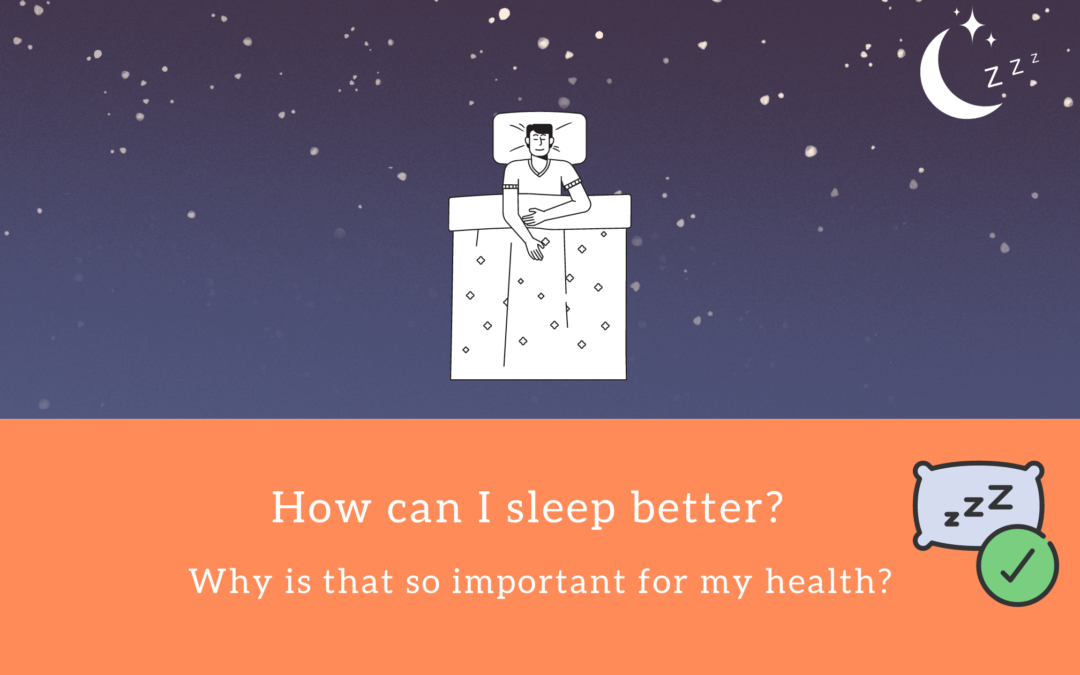Many perceive that whilst we are asleep the various systems we have in our body all go into restful states. However this is not entirely true as some parts of your body are working hard whilst you sleep and are key to maintaining good health both physically and mentally.
For example whilst we are in deep sleep our breathing and heart rate go down, however your ability to process memories and your body’s ability to fight off germs goes up.
There is increasing amounts of research being undertaken about deep sleep and why it is so important and not everything is understood. What is understood though is everyone needs it!
What is deep or restorative sleep?
There are two kinds of sleep:
Rapid eye movement (REM)
Non-rapid eye movement (NREM)
Put simply your deepest and most restorative sleep happens during NREM and mostly occurs during the first half of your night’s sleep. This type of sleep for those interested in reading a little further into it is called slow-wave sleep (SWS).
What happens to my body during deep sleep?
Body temperature drops – Your brain and body cool down. It is thought that this helps you save and restore energy.
Blood pressure and heart rate reduces – You breathe at a slower and steadier rate, this is as a result of your “rest and digest” system or parasympathetic nervous system kicking in.
Bone and muscle repair and grow – A hormone is released called human growth hormone. This helps your body repair muscle and other tissues. In children this hormone helps their bones to grow.
Deep Sleep and Your Brain – Our brain waves get slower, bigger, and follow a pattern during deep sleep and thats an important part of how we learn and store memories.
These waves also help other processes to happen that clear out certain harmful waste. Deep sleep also gets rid of a protein called beta-amyloid, which is linked to Alzheimer’s disease.
Your Immune System – It is thought that increased levels of deep sleep helps us get better faster when we are unwell with an infection and helps to strengthen our immune system daily
Maintaining a healthy metabolism – This is the process of converting food that we eat into energy that we can then use for our daily processes in our body. It is thought that deep sleep helps us to maintain a healthy metabolism.
Energy levels – Good quality sleep should enable you to feel less tired and more energised when you wake up.
What happens if I don’t get enough deep sleep?
The bottom line is that poor quality sleep can impact your mental and physical well-being.
Research links poor deep sleep to health conditions like mood disorders, migraines, heart disease, and obesity. It is understood that a lack of restorative sleep impacts on your body’s ability to fight infections, your ability to think clearly and may cause memory problems.
It is thought that it can increase your chances of:
Dementia and Alzheimer’s disease
High blood pressure
Heart attack and stroke
Type 2 diabetes
So it is vitally important that we do everything we can to get more Deep Sleep.
How can I sleep better?
Set your bedroom up to be stress and distraction free.
The ideal room for sleep is cool and dark – It is thought that the best temperature range is between 16 and 19 degrees celsius, the darker the room the better so use black out curtains or blinds to block unwanted light. Remove any electrical devices that give out disturbing light.
Create a peaceful quiet environment – Get rid of any devices that may make noise… ticking clocks, vibrating or illuminating phones. That said, some people rely on “white noise” to help with other disturbing noise such as busy roads. Listening to sleep casts can help create a relaxing, peaceful environment for sleep.
Declutter your bedroom – Often what you see is what you get! If your bedroom is chaotic then that may influence how easy you will find it falling asleep. Time to tidy up!
Invest in a good bed – A comfortable mattress is essential for good sleep. Get some advice on whether a soft or firm setup is best for you.
Find your perfect pillow – You can purchase pillows that best suit your preferred sleep position. If you’re a side sleeper your pillow should comfortably support your head, neck, and ear as well as your shoulder. For those who prefer to sleep on their backs consider a thinner pillow to limit stress on the neck. If you are an allergy sufferer hypoallergenic pillows may help. Also consider the type of filling the pillow has, from natural feathers to synthetic options such as foam, latex and rayon.
Prepare yourself for better sleep
Play music that relaxes you and lifts your mood – Sleep casts also can help some.
Use mood lighting – Switch off the bright lights and use more indirect light. Lamps, a dimmer switch and candles can help to create a more a relaxing environment.
Limit your caffeine and alcohol intake – Caffeine and alcohol too late in the day will effect your sleep quality.
Exercise and activity – Exercise early in the day.
Get outdoors earlier in the day – Getting enough natural light during the day helps keep your body clock on a healthy sleep-wake cycle.
Limit blue light – Leave the phones and computers alone!
Avoid anything that makes you feel anxious – Gentle yoga and meditation can help.
Enjoy a bedtime bath – A warm bath or shower an hour or two before bed has been shown to relax both the body and mind.
Get lost reading a good book or magazine (not a backlit tablet!) – Reading is a great way to relax. It is thought that as little as six minutes reading can reduce stress by 68%. If you are not an avid reader again listening to a sleep cast can help.


Recent Comments